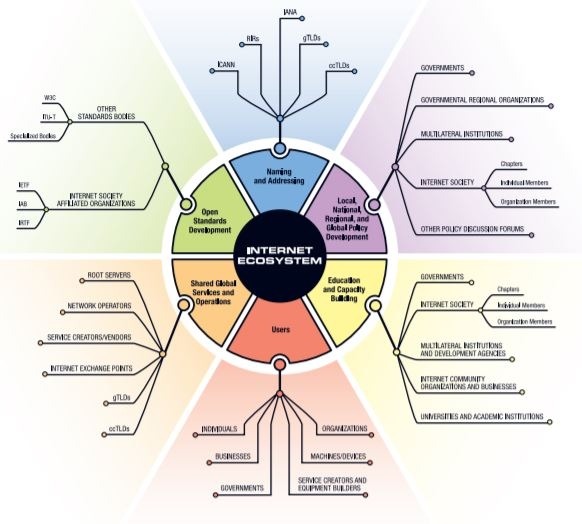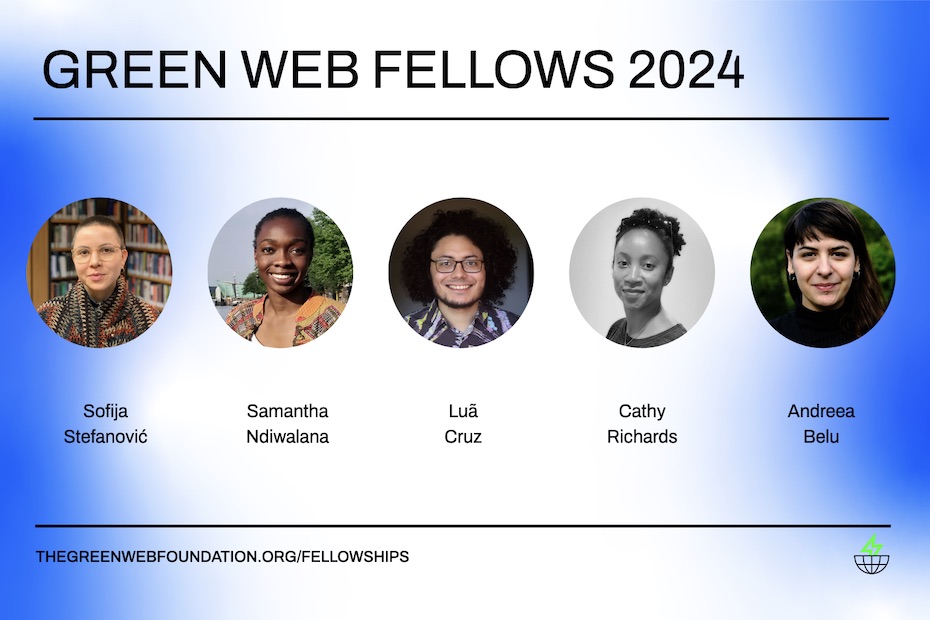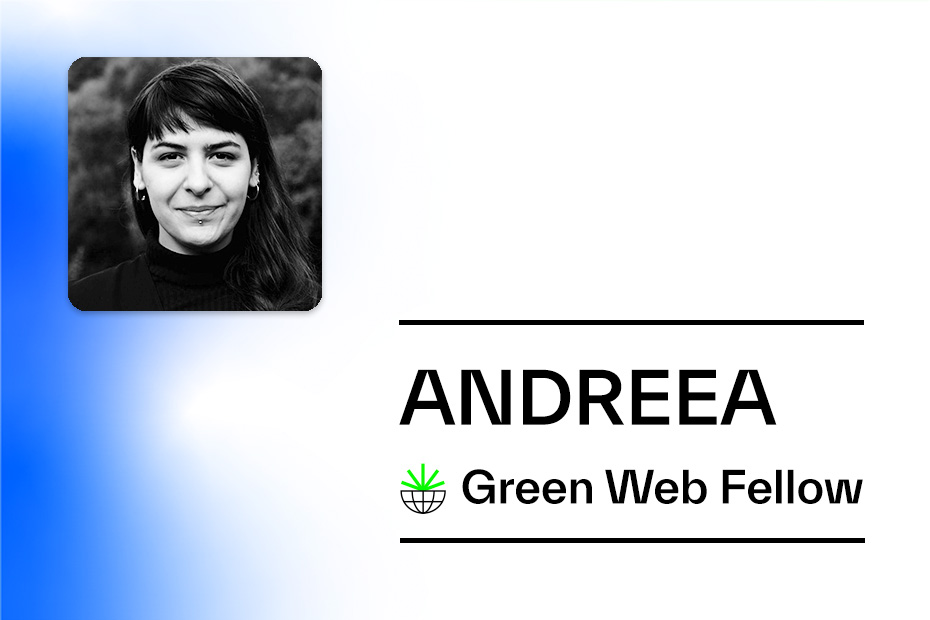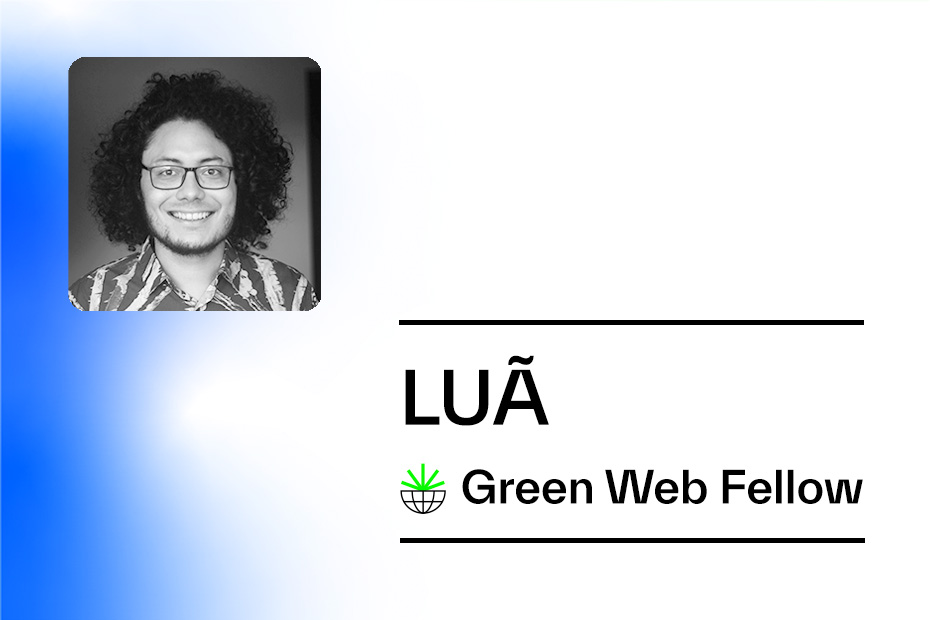One of the questions that our cohort has discussed the most is about who should we consider an Internet practitioner. Since the Internet is a complex ecosystem and its carbon footprint is hard to measure and manage as a whole, one of the activities of this fellowship is to identify the people who, through their professional practice, can help shape the practices, technologies and rules that govern digital technologies towards sustainability. Since we are exploring the narratives that link responsible Internet practice with climate justice, linking these narratives to the right individuals is important. For this reason, as we move forward, this question came up in many of our conversations over the past months.
Practitioners are hard to identify and describe because the Internet is used across all industries, and is shaped by individuals with a variety of skills and degrees of influence. One of the things I’ve found is that my view of an Internet practitioner from my immediate experience is somewhat different from the type of person I would find in a different country. A couple of misperceptions I’ve been pondering about are the following:
Practitioners as hard-skilled
When thinking about Internet practitioners, we think of an expert from the Global North, perhaps a developer or someone who builds code or Internet infrastructure. This is a phenomenon that I’ve seen in other spaces. For example, I’ve read good literature about some of these biases in the maker movement, where makers are envisioned as white and male, and focused on using the latest fabrication techniques (machinery, digital design, etc.).
There has been an interesting push towards the creation of feminist makerspaces in the past few years, trying to turn them into more inclusive places. The great thing about these movements is that they’re not only focused on gender inclusivity, but also on the revindication of other forms of making that include so-called soft skills. I can see this as part of the Internet ecosystems as well, because part of the problem of an unsustainable Internet could have something to do with a lack of non-technical representation. So we must ask ourselves: are environmentalists Internet professionals? How about policy experts, and lawmakers? We must maintain a broad view of the required skills if we want to truly connect Internet practice and climate justice.
Global North as decision-makers
One interesting change in tech over the past few years, and that has grown due to the COVID-19 pandemic is the increasing number of tech workers being outsourced from low-income countries, essentially turning tech into an extension of the gig economy. Although the most common examples of these are workers managed through online labor platforms, there is an increasing demand for higher-skilled workers. These work modes where technically-savvy individuals export their skills are incentivized by multilateral institutions like the IADB through concepts such as the Orange Economy.
This leads us to think of practitioners as being part of specific economic spheres. There is, however, a great disadvantage for individuals coming from developing countries: they receive lower wages for the same work as peers working in other parts of the world, these workers become dependent on organizations from the Global North, and there are limits to the degree of influence that they can exert in their work environment.
There is however an opportunity for this trend that could bring a shift in power structures. For example, some degree of influence in tech is available to the people who are most affected by climate change. There is also the opportunity for a broader and more localized view of technology and the awareness of the localized impact of digital technologies. The assessment of technologies like the implementation of cryptocurrencies or the installation of data centers will be different for a person who experiences its direct effects, such as higher electricity costs or depletion of natural resources.
So who is a practitioner anyway?

Bringing it all together, we can say that Internet practitioners may 1) come from a variety of backgrounds, 2) offer technical and non-technical expertise, and 3) have an interest in how the Internet is shaped and its impact on communities worldwide. The broadness and interconnectedness of this characterization brings to mind the Multistakeholder Internet Governance model, bringing together the many actors who shape the Internet.
Being part of any of these stakeholders and coming from a low-income country is not enough, however. For example, as many of us take a job offer abroad because it pays more, we are not facing the opportunity that this brings to move towards sustainability. This may look like a purchase decision, a technology assessment or proposing new environmental policies for organizations. Perhaps the question is too big for this project, but I want to ask anyway: how can freelance or remote workers, or perhaps mid-level developers create awareness at an organizational level?
For this reason, for my fellowship project, I have been focusing on mid-level professionals of the many industries with the following characteristics: they are professionals with an interest in sustainability, possibly coming from low-income countries; tech workers, students, or researchers with an interest in sustainability. Most importantly, I want to explore how practitioners can use their skills to influence decisions around the use of the web, using our ethical responsibility to turn the climate change frontline into the Internet sustainability forefront.


